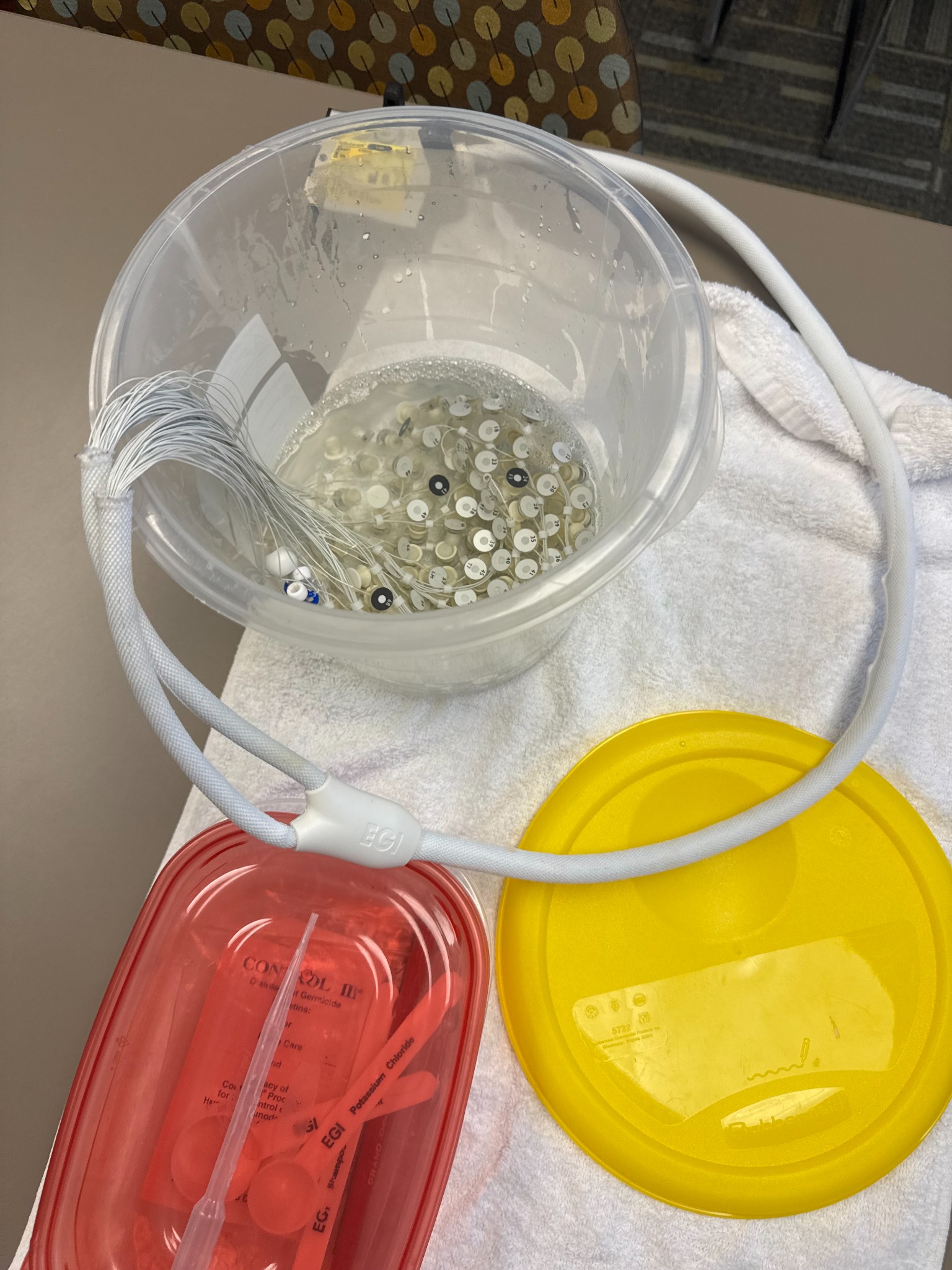
My Journey from Psychology Major to Future SLP
If you’ve found your way here, chances are you already know a little about the world of speech-language pathology; it’s the main focus of this site, after all! But if you’re new to learning the field, I’ll let’s start with a quick overview of the typical path an speech-language pathologist (SLP) takes to become certified. After that, we can explore my slightly unorthodox route into this profession and how my unique path has actually aided my entrance into the field.
The Typical SLP Journey
Most SLPs begin their journey by majoring in something called Communication Sciences and Disorders. This major lays the groundwork for the graduate-level coursework and clinical training required to become a certified SLP. From there, they typically attend a two-year graduate program, complete clinical hours, take a certification (the Praxis), and complete a clinical fellowship year. Once you have done all of that and been certified within your own state, you are then able to practice as a licensed SLP. You can learn more about this route on the American Speech and Hearing Association (ASHA) website. They have lots of great resources for aspiring speech pathologist While majority of speech pathologist follow this path without much deviation, my route looks a little different.
My Speech Journey
When I was a senior in high school, I knew speech pathology was likely my top choice. However, I didn’t want to pick my college solely based on my intended major. I worried I might change my mind and then find myself at a school that didn’t truly fit who I was. I ended up choosing Loyola because I loved the school itself and could see myself living in Chicago. I chose to be a psychology major because I knew that there was quite a few opportunities to intersect that with speech pathology and because I love learning about the human mind.
My path to graduate school will take an additional year, as I will need to complete some prerequisites. I am currently on track to start my speech coursework next fall, putting me on the path to graduate with my master’s in Spring of 2029. At times, I have felt discouraged because this is a less traditional path. There isn’t an abundance of guidance for psychology majors pursuing SLP, but I know that with determination, it is entirely possible.
Here are some of the biggest things that I believe will be incredibly useful to carry over from my psychology background into work as an SLP:
- Detailed Knowledge of Developmental Processes
- Psychology majors have to have strong backgrounds in behavioral and neurological development. Between developmental psychology coursework, neuroscience classes, and having an understanding of psychopathology, Loyola has offered me a strong foundation in understand developmentally appropriate care. I now have the opportunity to apply this to whatever age group and demographic I am working with, as speech pathologist work with all age groups from infancy to geriatric populations.
- Understanding of Trauma-Informed Care
- Often overlooked by SLPs, trauma-informed care is vital to patient success. When treating a patient with brain trauma for instance, you can’t just focus on their speech. You have to look into the whole person (their emotional state, cognitive function, and lived experience). By approaching each client with empathy, patience, and awareness of past or ongoing trauma, SLPs can create a safer and more effective environment that supports both communication and healing.
- Research and Statistics Background
- At Loyola, I have had the opportunity to work in the Center for Research on Child Development (CRCD) under the supervision of Dr. Guy. My work in the research lab has given me a lot of insight into not only the world of participant recruitment and interaction, but also EEG training. An EEG (Electroencephalogram) measures electrical activity on the scalp, recording brain waves. It is an incredibly useful tool in speech pathology research and this training is something most students don’t have the chance to learn about until well into their graduate programs. Beyond my work in the lab, I also have been able to take several levels of statics coursework, preparing me for the more analytical side of speech pathology. Both of these opportunities have made it so any time I encounter research in my graduate schooling I will feel confident interpreting and contributing to the data.

- Understanding of Communication Beyond Words
- Psychology has taught me that the vast majority of communication is not just what we say, but how we say it. Tone of voice, facial expressions, gestures, and even silence can all carry meaning. Studies in psychology give you an understanding of nonverbal communication that can be vital in patient interactions.
Final Thoughts
If you are an undergraduate and you find yourself looking toward speech pathology, but feel afraid it's too late, I promise you it isn’t! It is imperative for speech pathologists to come from a variety of backgrounds because these intersections of topics drive progress. Every day, SLPs are finding ways to connect communication to so many different areas. Wether you spent your time in undergrad focusing on art, neuroscience, nursing, or linguistics, your voice in their field is valued. My personal belief is that we should be encouraging future SLPs to major outside of just Communication Sciences and Disorders, because the more different perspectives we have, the stronger of a profession we become.
Links
Post a comment